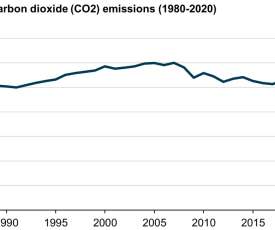EIA: US energy-related CO2 fell by 2.8% in 2019, slightly below 2017 levels
Green Car Congress
MAY 11, 2020
Overall, US energy-related CO 2 emissions have fallen 15% from their peak of 6,003 MMmt in 2007. In 2019, the transportation sector’s energy-related CO2 emissions declined by 0.7% Nearly all of the change in CO 2 emissions in 2019 arose in the electric power sector.




































Let's personalize your content